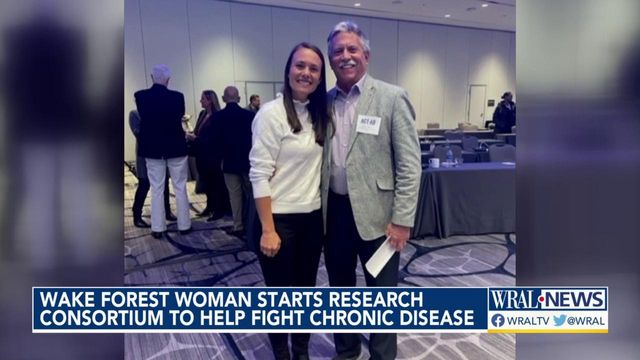Wake Forest woman leads group of specialists fighting for ways to identify, treat infectious diseases
A Wake Forest mother and clinical specialist now leads an effort to better identify infectious diseases.
Nikki Schultek and a consortium of experts hope to improve treatment for a variety of infection-associated diseases like asthma, Alzheimer’s disease and HIV. Her mission began with her own illness.
After college, Schultek pursued a career in drug development. She worked for major companies like Pfizer and Genentech. Close to eight years ago, she became the patient.
"And all of the sudden my asthma just got out of control to where I couldn’t breathe or sleep at night," said Schultek. High-dose steroids didn’t help. Then she developed a chronic bladder pain disorder. She said, "My doctors began to think that I might have MS."
That’s multiple sclerosis, an auto-immune disease, but doctors couldn’t confirm it. Shultek decided to do the research herself.
She explained, "My work in pharmaceuticals and bio-technology really enabled me to understand medical research and I found a study that really changed the rest of my life."
The study was led by the late Dr. Charles Stratton, a microbiologist at Vanderbilt University. He linked a common respiratory bacterium to chronic infections which may be treatable. "I ended up being treated with antibiotics and placed all of the conditions I had into remission," said Schultek.
That’s when she took the role of principal and founder of Intracell Research Group, made of hand picked specialists from the U.S. and around globe including Alzheimer's researcher Dr. Brian Balin.
Dr. Balin remembers, "She wanted to develop a team effort of individuals that were studying this problem in a number of different diseases."
Balin says the consortium is challenged by the lack of recognition in the scientific realm. "Without that widespread acceptance, the message does not get across to clinicians and to other researchers or to the public in general."
Shultek says she was one of the many left wandering around the medical system desperate for answers.
"When you are in pain, where you can’t breathe or you’re fearing that you are going to lose the ability to move your hands because you are experiencing neuro-degenerative symptoms, it really puts everything in perspective," she said. "You’re not living, you’re just existing."
Part of Schultek’s motivation to advance infectious disease research – is that one of her sons, like her – suffers with asthma.











